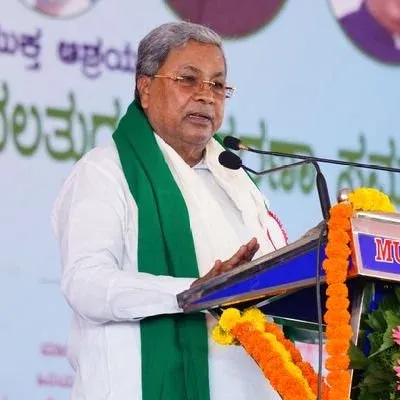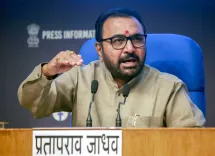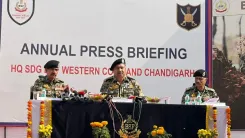Are Opposition-Ruled States Advocating for GST Rate Rationalisation?

Synopsis
Key Takeaways
- Rationalisation of GST rates is sought by Opposition-ruled states.
- A robust framework is essential to protect state revenues.
- Collaboration between the Centre and states is crucial for GST sustainability.
- Karnataka faces significant funding shortfalls from the Centre.
- Consensus among Opposition states aims for fair, sustainable reforms.
Bengaluru, Aug 29 (NationPress) In response to discussions among Opposition-ruled states in Delhi about the Union government's proposal for rationalising GST rates, Karnataka's Chief Minister Siddaramaiah stated on Friday, "We (Opposition-ruled states) are in favor of rationalisation of GST rates, simplifying compliance, and alleviating the burden on the populace."
He conveyed this message to the press.
Chief Minister Siddaramaiah remarked, "Today, eight Opposition-ruled states convened in Delhi to discuss the Union government's announcement on GST rate rationalisation. Karnataka was represented by our Revenue Minister, Krishna Byregowda."
"We advocate for rationalising GST rates, easing compliance, and lessening the financial strain on citizens. However, such reforms should include a robust framework that safeguards the fiscal interests of the states," the Chief Minister elaborated.
He added, "Absent this, states will struggle to maintain welfare and development initiatives, potentially undermining their financial autonomy."
The Chief Minister noted that Opposition leaders have consistently criticized the flawed implementation of GST since 2017 and have persistently called for the rationalisation of GST rates.
"Even within the GST Council, states have repeatedly urged for rationalisation, always stressing the importance of protecting revenue interests. Karnataka has also raised this concern in several Council meetings," CM Siddaramaiah expressed.
"GST is a shared responsibility, built on mutual respect and accountability between states and the Centre. For the sustainability and stability of GST, collaboration between the Centre and states is essential," he emphasized.
This necessitates that states' concerns are adequately addressed, he stressed.
"Furthermore, Karnataka has faced discrimination in fund allocation from the Union government, resulting in an annual deficit of nearly Rs 25,000 crore. Any further decline in GST revenues would exacerbate this injustice and directly impact our ability to fulfill developmental and welfare commitments," CM Siddaramaiah remarked.
"We anticipate a constructive and positive response from the Central government, engaging with states in good faith in the spirit of cooperative federalism," he concluded.
"Consequently, I firmly advocate that the rationalisation of GST rates should include: a solid revenue protection framework for states, an additional levy on sin and luxury goods, and a guaranteed compensation mechanism for at least five years," the Chief Minister stated.
"I commend the consensus draft prepared by the Opposition-ruled states during today’s meeting, which will be presented to the GST Council. This draft aims to ensure that reforms are both fair and sustainable," CM Siddaramaiah added.










